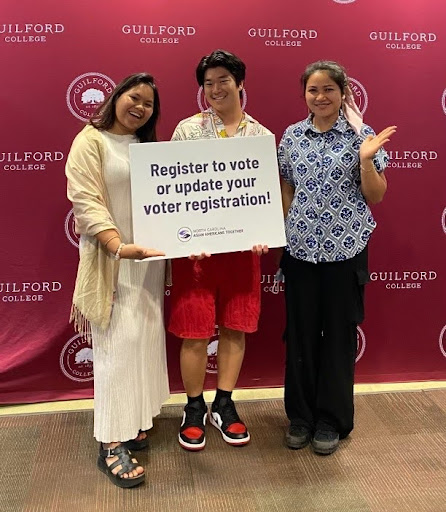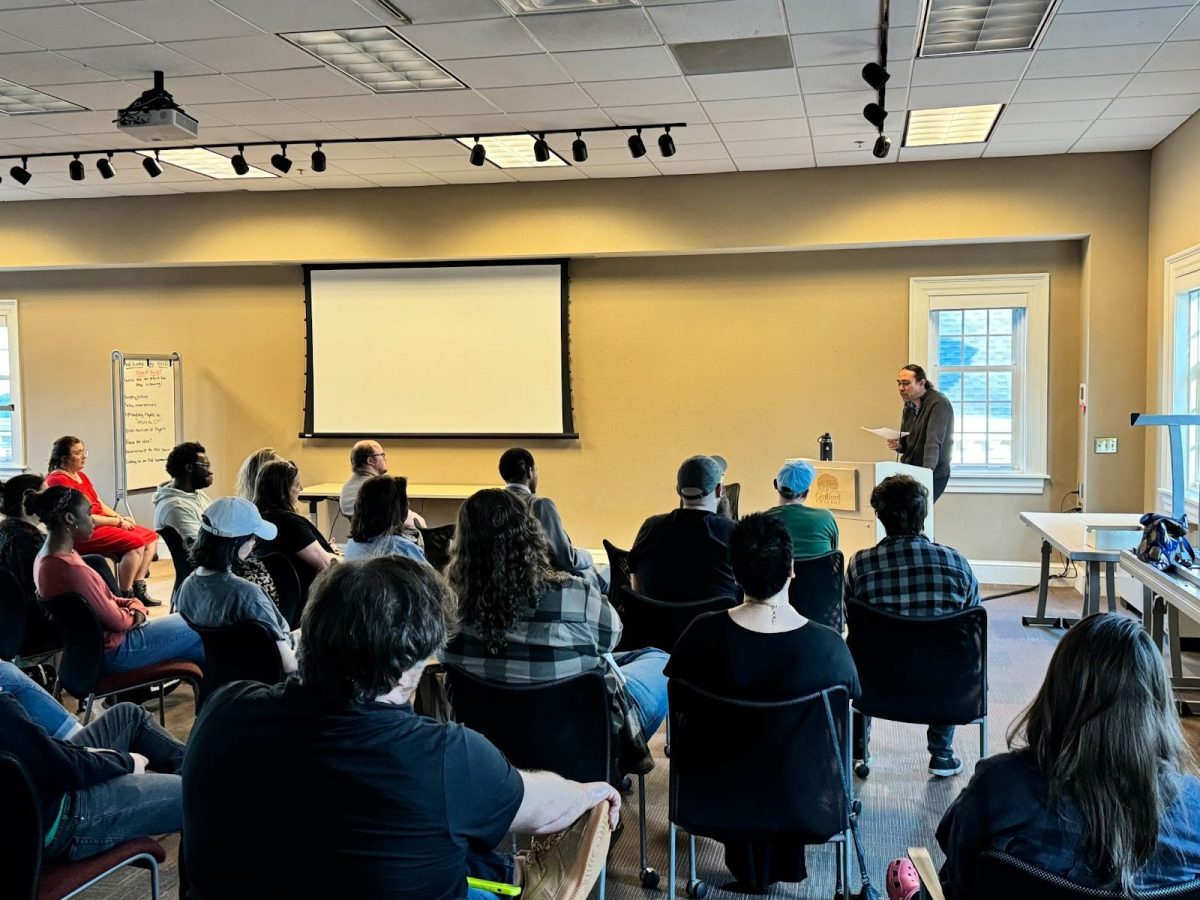“I’m surprised we haven’t done this earlier,” said first-year Alexander Morales. “It doesn’t matter if other schools aren’t doing it. This is a core part of our ethos — that’s all that matters.”
Guilford recently took a step toward being part of a small group of private colleges that give students a high place in the decision-making process. On March 14, Community Senate unanimously supported a proposal to create a traditional student position on the Board of Trustees.
“This gives an added level of transparency and communication between students and those who are really in charge — Kent’s bosses,” said senior and Inter-Club Council Chair Elijah DaCosta.
The proposal was heavily supported by students, with the only disagreement being over how to select the student trustee. Originally, the proposal was to have a Senate executive hold the position, but present parties decided to open it up to others who would be interested.
If approved by the Board of Trustees, the proposal will bring a stronger voice to the student population.
“From personal experience, I have been in positions when I had concerns about the agenda before the Board, but I had no real recourse to represent the students in opposition,” said senior and Community Senate President/Clerk Yahya Alazrak.
“Who wouldn’t want to sit in on those meetings?” said DaCosta. “I’m sure lots of interesting things get discussed behind those closed doors.”
Currently, some students are allowed to sit in on certain meetings. However, some meetings are still closed to these students, and their consent is not necessary for the Board to move forward with any decision.
This puts Guilford in the 12.5 percent of independent colleges that have at least one non-voting student member on the college board of trustees, according to the Association of Governing Boards of Universities and Colleges. Only 8.5 percent of independent colleges have at least one voting student member, compared to 50.3 percent of public colleges with at least one voting student member.
Some feel that Guilford very much belongs in that small percentage of independent colleges.
“Guilford is a place where student empowerment and leadership has been central, so this only furthers that mission,” said Alazrak.
Moreover, if approved by the Board of Trustees, the proposal could set a precedent for more change.
“This could open the door for CCE and faculty trustee representation,” said Alazrak. “I’d be very proud that traditional students opened that door first. This also isn’t the first time an ‘interest group’ has pushed for a position. The alumni position shows that there is precedent for this.”
The Board of Trustees does not meet again until June, making that the earliest they could make a decision on this proposal. Though it is a long way off, both Alazrak and DaCosta are optimistic about how the idea will be received.
“Trustees are always eager and excited to hear student input,” said Alazrak. “I think most of them realize what they’re doing is with students in mind. I think they’ll be supportive, but this is against tradition and against the grain. We have to show why this is a good idea.”
“Hopefully they’ll receive it well as a good idea, because it is a good idea,” said Dacosta. “It’s definitely in line with our values as a school. I’d be a little concerned if they didn’t want any student to know what was going on.”






